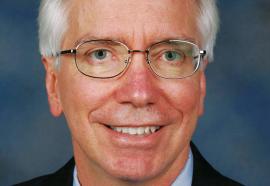Wind Goes Hollywood
The spotlight is on. But true stardom will require more direction from utilities.
Wind has become today’s hit—a potential blockbuster, even—but still needing that one big break. To make it big, utilities will have to lead the charge as owners. That will force utilities to consider and evaluate the significant credit implications that can arise when signing a power purchase agreement with developers that lack deep pockets, or implement fly- by-night schemes.










